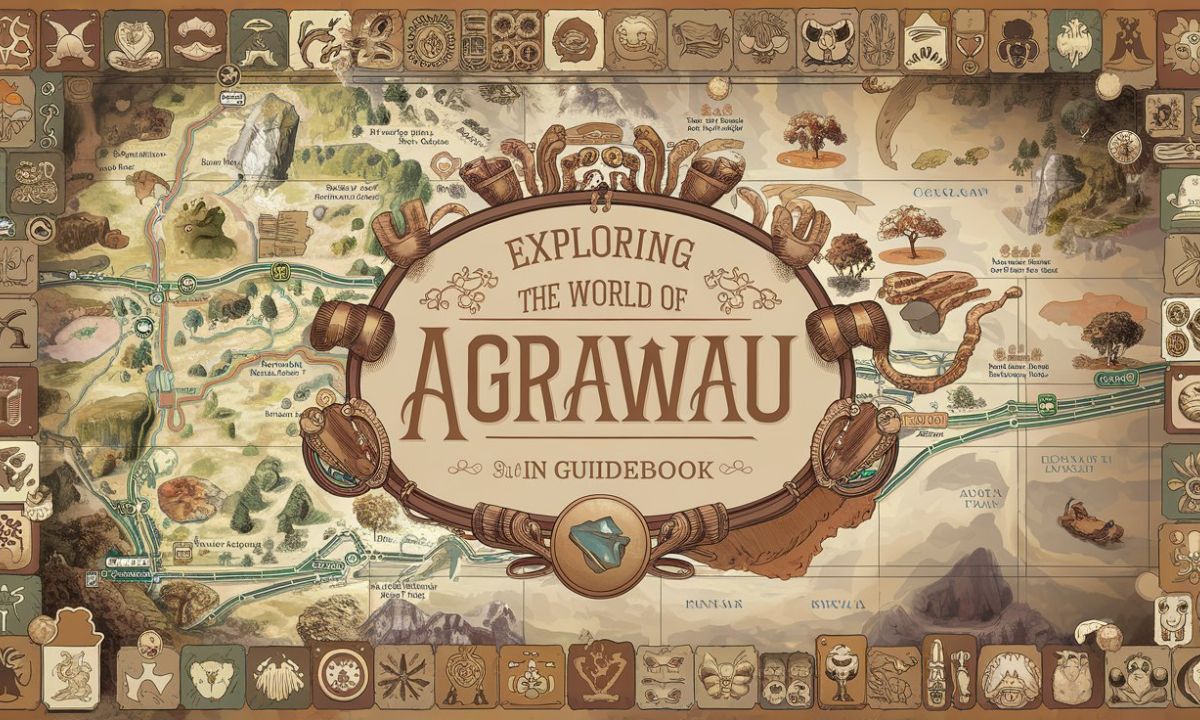Nestled within the tapestry of ancient Indian civilization lies a cultural treasure trove waiting to be discovered: Agrawau. This hidden gem has captivated the hearts and minds of those fortunate enough to stumble upon its rich heritage and vibrant traditions.
In this comprehensive guide, we’ll embark on a journey through the fascinating world of Agrawau, uncovering its secrets, celebrating its cultural significance, and exploring how this ancient community continues to thrive in modern society.
What is Agrawau?
Agrawau, often referred to as Agrawal, is more than just a community—it’s a living testament to the enduring spirit of ancient Indian traditions. Rooted in the principles of entrepreneurship, philanthropy, and cultural preservation, Agrawau represents a unique blend of time-honored values and modern adaptability.
The Agrawau community traces its origins to the legendary Maharaja Agrasen, a visionary leader who laid the foundation for a society built on prosperity and ethical business practices. Today, Agrawaus are known for their:
- Strong business acumen
- Commitment to education and personal growth
- Deep-rooted cultural traditions
- Philanthropic endeavors
This community has managed to preserve its distinct identity while adapting to the ever-changing landscape of global commerce and culture. The Agrawau way of life is a fascinating study in balance—between tradition and innovation, between individual success and community welfare.
A Glimpse into the History of Agrawau
The story of Agrawau is intrinsically linked to the broader narrative of Indian civilization. Let’s take a journey through time to understand the key milestones that shaped this remarkable community:
- Ancient Beginnings (circa 3000 BCE): The Agrawau community’s roots can be traced back to the time of Maharaja Agrasen, believed to have lived around 5000 years ago. Legend has it that he founded the community based on principles of equality and ethical commerce.
- Vedic Period (1500-500 BCE): During this time, the Agrawau principles began to take shape, aligning with the broader Vedic philosophy of dharma (duty) and artha (wealth).
- Classical Period (500 BCE – 500 CE): Agrawaus established themselves as skilled traders along the ancient trade routes, contributing to the economic prosperity of various Indian kingdoms.
- Medieval Period (500-1500 CE): As empires rose and fell, Agrawaus spread across different parts of India, adapting to local cultures while maintaining their core values. They became known for their expertise in banking and finance.
- Mughal Era (1526-1857): Agrawaus played a significant role in the economic life of the Mughal Empire, often serving as treasurers and advisors to rulers.
- Colonial Era (1757-1947): The community adapted to changing economic landscapes, diversifying their business interests and embracing modern education. Many Agrawaus became pioneers in industrialization efforts.
- Post-Independence (1947-Present): Agrawaus played a significant role in India’s economic development, founding major business houses and contributing to various industries. They’ve also expanded their influence globally, establishing successful enterprises across continents.
This rich history has shaped the Agrawau community into what it is today—a group that honors its past while continuously adapting to the future.
The Origins of Agrawau
The origin of Agrawau is steeped in legend and historical significance. According to tradition, Maharaja Agrasen founded the community based on principles of equality, prosperity, and ethical business practices. These values continue to guide Agrawaus today, forming the bedrock of their cultural identity.
“The legacy of Maharaja Agrasen lives on in the spirit of every Agrawau, inspiring us to combine business acumen with social responsibility.” – Dr. Rajesh Agrawal, Agrawau Cultural Historian
The story goes that Maharaja Agrasen established a kingdom where every citizen was equal, and the pursuit of wealth was balanced with ethical considerations. He is said to have founded the city of Agroha (in present-day Haryana, India), which became a model of prosperity and social harmony.
One of the most famous legends about Agrasen involves the “One Brick, One Coin” policy. According to this story, anyone who wished to settle in Agroha was asked to contribute one brick and one coin. The brick would go towards building the city, while the coin would be given back to the new settler as capital to start their business. This policy symbolizes the Agrawau principles of community building and entrepreneurial support.
Significance of Agrawau
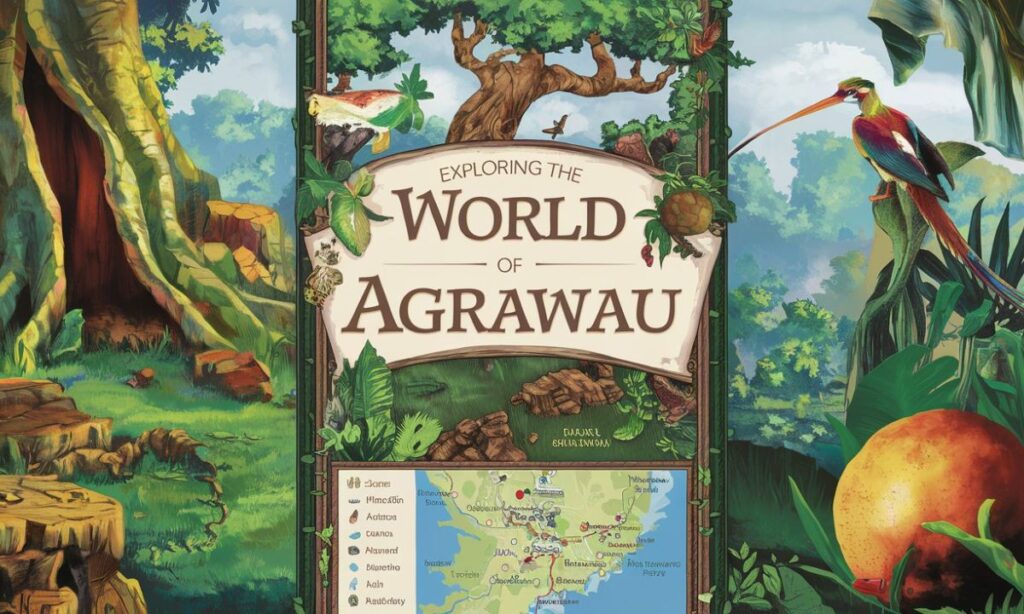
The Agrawau community holds significant importance in Indian society, particularly in the realm of commerce and philanthropy. Their influence extends far beyond their numbers, shaping economic landscapes and cultural paradigms.
Cultural Impact
- Preservation of ancient traditions and rituals
- Promotion of ethical business practices
- Emphasis on education and personal development
- Maintenance of a strong community bond across geographical boundaries
Economic Contributions
- Founding of major Indian business conglomerates
- Pioneering entrepreneurial ventures across various sectors
- Significant contributions to India’s GDP through business activities
- Development of innovative financial practices and instruments
Social Responsibility
- Establishment of educational institutions, from primary schools to universities
- Creation of charitable trusts and foundations focused on healthcare and social welfare
- Active participation in community welfare programs
- Promotion of sustainable and eco-friendly business practices
The Agrawau community’s impact is felt not just in India, but globally. Their business acumen, coupled with a strong sense of social responsibility, has led to the creation of numerous philanthropic initiatives that benefit society at large.
Festivals and Celebrations
Agrawau culture comes alive through its vibrant festivals and celebrations. These events not only showcase the community’s rich heritage but also serve as a means of passing down traditions to younger generations.
Key Agrawau Festivals:
- Agrasen Jayanti: Celebrating the birth of Maharaja Agrasen, this festival is marked by community gatherings, cultural programs, and charitable activities. It usually falls in September or October according to the Hindu lunar calendar.
- Diwali: The festival of lights is celebrated with great enthusiasm in Agrawau households. Apart from the usual customs, many Agrawaus perform Chopda Pujan—a ritual of blessing account books—symbolizing prosperity in business.
- Govardhan Puja: This harvest festival, celebrated the day after Diwali, holds special significance for Agrawaus. It involves creating a small mound of food symbolizing Mount Govardhan, which is then worshipped.
- Ganesh Chaturthi: Celebrated with great fervor in Agrawau households, this festival honoring Lord Ganesha is seen as auspicious for new beginnings, including business ventures.
- Raksha Bandhan: This festival celebrating the bond between brothers and sisters takes on additional significance in Agrawau communities, often involving the renewal of business partnerships.
These festivals not only serve as occasions for joy and celebration but also reinforce community bonds and cultural values. They provide a platform for Agrawaus to come together, regardless of their geographical location, and celebrate their shared heritage.
Traditional Occupations
Historically, Agrawaus have been known for their prowess in trade and commerce. However, their traditional occupations have evolved over time, adapting to changing economic landscapes.
| Traditional Occupation | Modern Equivalent |
| Traders | E-commerce entrepreneurs |
| Moneylenders | Financial consultants |
| Merchants | Corporate executives |
| Artisans | Design professionals |
| Bankers | Investment bankers |
| Jewelers | Luxury goods entrepreneurs |
| Textile traders | Fashion industry leaders |
While the specific industries may have changed, the core skills and values associated with these traditional occupations continue to serve Agrawaus well in the modern business world. The community’s ability to adapt these age-old professions to contemporary markets is a testament to their entrepreneurial spirit and business acumen.
For instance, the traditional role of a moneylender has evolved into that of a financial consultant or investment banker in today’s world. The skills of assessing risk, understanding market trends, and managing finances—honed over generations—have proven invaluable in modern financial sectors.
Similarly, the artisanal skills that once produced traditional crafts have found new expression in fields like industrial design, fashion, and digital art. This evolution showcases the Agrawau community’s ability to preserve their core strengths while adapting to changing times.
Cultural Practices and Traditions
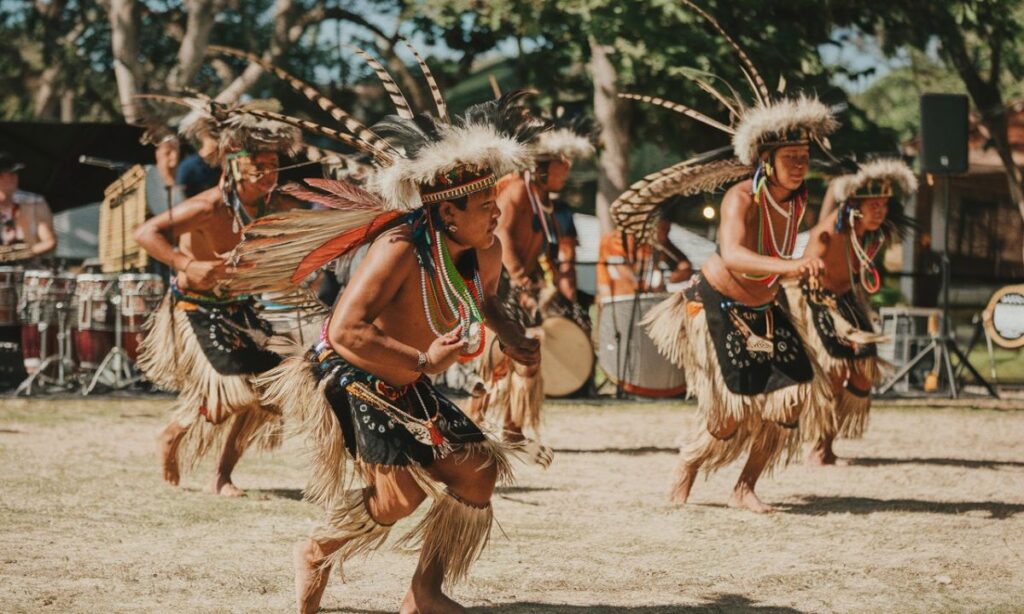
The Agrawau community is known for its rich cultural practices that have been preserved through generations. These traditions form the core of Agrawau identity and continue to play a significant role in modern Agrawau life.
Key Cultural Practices:
- Joint Family System: Emphasizing familial bonds and collective responsibility, this system promotes shared resources and mutual support.
- Vegetarianism: A dietary practice rooted in religious and ethical beliefs, promoting compassion and sustainability.
- Community Gatherings: Regular meetings to discuss community affairs and celebrate festivals, fostering a sense of belonging and unity.
- Traditional Attire: Wearing of specific clothing styles during ceremonies and festivals, symbolizing cultural pride and continuity.
- Vedic Education: Emphasis on learning ancient scriptures alongside modern education, preserving spiritual and philosophical knowledge.
- Business Ethics: A strong code of conduct in business dealings, prioritizing honesty and fairness.
- Marriage Customs: Unique rituals and practices surrounding matrimony, often aimed at strengthening community bonds.
Agrawau’s Development
The development of Agrawau culture has been a journey of adaptation and preservation. While maintaining their core values, Agrawau practices have consistently adapted to align with modern societal developments:
- Embracing Technology: Integrating modern tools while preserving traditional business ethics. For example, many Agrawau businesses have been at the forefront of digital transformation in India.
- Education Focus: Emphasizing higher education and professional skills. The community has established numerous educational institutions that blend traditional values with modern curriculum.
- Global Outreach: Expanding Agrawau businesses and cultural influence internationally. Today, Agrawau entrepreneurs can be found leading companies across the globe.
- Women Empowerment: Encouraging women’s participation in business and community leadership. There’s been a significant shift towards supporting women’s education and entrepreneurship within the community.
- Environmental Consciousness: Incorporating sustainable practices in business and daily life, aligning ancient wisdom with modern environmental concerns.
- Interfaith Dialogue: Promoting understanding and cooperation with other communities, while maintaining their distinct identity.
This evolution demonstrates the Agrawau community’s remarkable ability to adapt to changing times while holding onto the essence of their cultural heritage. It’s this balance between tradition and modernity that has enabled the Agrawau community to thrive in diverse environments across the world.
Important Agrawau Features
The Agrawau community is characterized by several distinctive features that set it apart:
Feature 1: Sophisticated Data Analysis
In today’s data-driven world, Agrawau practitioners have embraced advanced data analytics to enhance their business acumen. This feature allows for:
- Informed decision-making in business ventures
- Trend analysis for market predictions
- Risk assessment and management
- Customer behavior analysis for personalized services
- Supply chain optimization
Many Agrawau-led businesses have been pioneers in implementing big data solutions, leveraging their traditional business intelligence with modern technological tools. This marriage of ancestral wisdom and cutting-edge technology has given Agrawau businesses a unique edge in various industries.
Feature 2: Integrated Easily
The Agrawau community’s ability to integrate easily into various social and economic structures has been key to its success. This is evident in:
- Seamless adaptation to different cultural environments
- Quick adoption of new technologies and business practices
- Building strong networks across diverse communities
- Ability to thrive in both traditional and modern business ecosystems
- Successful expansion into international markets while maintaining cultural identity
This adaptability has allowed Agrawau businesses to expand globally, establishing successful ventures across continents while maintaining strong ties to their cultural roots.
Feature 3: Interface That’s Easy to Use
The Agrawau approach to business and community interactions is characterized by its user-friendly nature:
- Clear communication protocols within the community
- Simplified business processes for efficiency
- Accessible community resources for members
- User-centric design in products and services
- Intuitive organizational structures in Agrawau-led companies
This emphasis on simplicity and accessibility, rooted in the community’s traditional values of inclusivity, has translated well into the modern business world. Many Agrawau-led tech companies, for instance, are known for their user-friendly interfaces and customer-centric approach.
The Operation of Agrawau
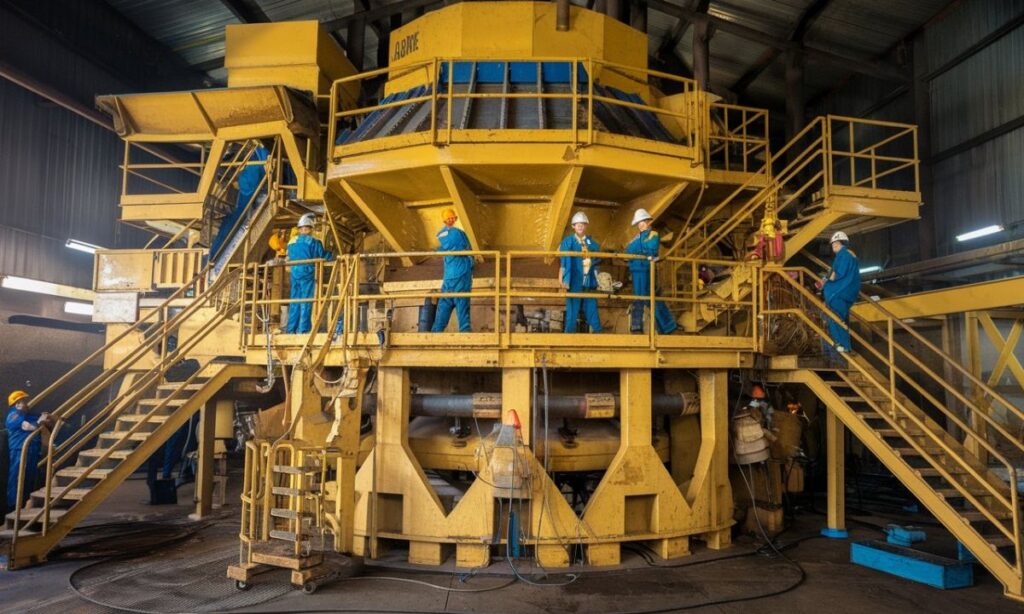
The Agrawau community operates on a set of well-defined principles that guide both personal and professional conduct:
- Ethical Business Practices: Emphasis on fair trade and honest dealings, maintaining transparency in all transactions.
- Community Support: Strong networks for mutual aid and business collaborations, fostering a spirit of cooperation alongside healthy competition.
- Educational Advancement: Continued focus on learning and skill development, with a balance of traditional knowledge and modern education.
- Cultural Preservation: Active efforts to maintain traditions while embracing modernity, ensuring the continuity of Agrawau heritage.
- Entrepreneurial Spirit: Encouragement of innovation and risk-taking, backed by community support.
- Philanthropy: A strong tradition of giving back to society, with many successful Agrawau businesses allocating significant resources to charitable causes.
- Family Values: Balancing professional ambitions with strong family ties, often integrating family into business structures.
These operational principles have enabled the Agrawau community to create a unique ecosystem that fosters both individual growth and community development.
Advantages of Agrawau
Being part of the Agrawau community offers numerous benefits:
- Access to a vast business network spanning various industries and geographical locations
- Strong community support system providing both personal and professional assistance
- Rich cultural heritage and identity offering a sense of belonging in an increasingly globalized world
- Emphasis on personal growth and education, with numerous community-sponsored educational initiatives
- Exposure to time-tested business principles and ethics
- Opportunities for mentorship from successful community members
- Platform for collaborative ventures and partnerships
These advantages have contributed to the success of many Agrawau individuals and businesses, creating a cycle of prosperity and community development.
Agrawau vs Rivals
While Agrawau is unique, it’s interesting to compare it with other similar communities:
| Aspect | Agrawau | Other Trading Communities |
| Business Focus | Diverse sectors | Often specialized |
| Cultural Practices | Strongly preserved | Varying degrees of preservation |
| Global Presence | Significant | Limited in some cases |
| Philanthropic Efforts | Highly emphasized | Varies by community |
| Adaptability | High | Moderate to High |
| Community Support | Very Strong | Strong |
| Educational Focus | Very High | Varies |
| Technological Adoption | Early Adopters | Varies |
This comparison highlights the unique aspects of the Agrawau community, particularly its emphasis on diversification, cultural preservation, and global outreach.
Practical Uses
The Agrawau approach finds practical applications in various aspects of life:
- Business Management: Applying traditional wisdom to modern corporate structures, balancing profit motives with ethical considerations.
- Community Building: Creating strong, supportive networks in new environments, fostering a sense of belonging and mutual support.
- Cultural Exchange: Sharing Agrawau values and practices in multicultural settings, promoting understanding and cooperation.
- Educational Initiatives: Establishing institutions that blend traditional values with modern education, preparing students for global challenges while maintaining cultural roots.
- Sustainable Development: Implementing eco-friendly business practices based on traditional principles of resource conservation.
- Conflict Resolution: Utilizing community-based approaches to solve disputes, both in personal and professional contexts.
- Financial Planning: Applying multigenerational wealth management strategies rooted in Agrawau traditions.
These practical applications demonstrate how Agrawau principles can be relevant and beneficial in various aspects of modern life, extending their influence beyond the community itself.
Case Studies and Triumphant Narratives
The Agrawau community boasts numerous success stories that showcase their entrepreneurial spirit and adaptability. One notable example is the rise of Agrawau Enterprises, founded by Rajesh Agrawal in 2005. Starting as a small trading company, it grew into a multinational corporation with interests in technology, real estate, and sustainable energy.
The company’s success is attributed to its adherence to traditional Agrawau business ethics, emphasis on employee development, and strong focus on community give-back programs. Another triumphant narrative is the Agrawau community’s response to the COVID-19 pandemic.
They mobilized resources globally, converting community halls into temporary hospitals, establishing vaccine research funds, and creating volunteer networks for essential services. These stories highlight the community’s ability to apply their values and business acumen to modern challenges, achieving success while maintaining social responsibility.
Case Study: The Rise of Agrawau Enterprises
Agrawau Enterprises, founded by Rajesh Agrawal in 2005, exemplifies the Agrawau spirit of entrepreneurship and innovation. Starting as a small trading company, it has grown into a multinational corporation with interests in technology, real estate, and sustainable energy.
Key Success Factors:
- Adherence to Agrawau business ethics
- Emphasis on employee education and development
- Strong focus on community give-back programs
- Early adoption of sustainable business practices
- Innovative approach to traditional industries
Results:
- Annual revenue growth of 25% over the past decade
- Establishment of educational scholarships for 1000+ students annually
- Recognition as one of the “Most Ethical Companies” for 5 consecutive years
- Creation of 10,000+ jobs across 15 countries
- Development of a breakthrough solar energy technology
This case study illustrates how Agrawau principles, when applied to modern business contexts, can lead to remarkable success while maintaining a strong commitment to social responsibility.
Triumph Narrative: The Agrawau Community Response to COVID-19
When the COVID-19 pandemic hit in 2020, the Agrawau community worldwide mobilized its resources to provide aid and support:
- Conversion of community halls into temporary hospitals
- Establishment of a global fund for vaccine
- Creation of a volunteer network for delivering essentials to the elderly and vulnerable
- Rapid pivot of Agrawau-owned businesses to produce essential supplies
- Launch of free online education platforms for students affected by school closures
This coordinated response showcased the Agrawau community’s ability to leverage its global network, business acumen, and community-oriented values in times of crisis. The initiative not only helped Agrawau members but also extended support to the broader society, earning widespread recognition and strengthening community bonds.
Obstacles and Restrictions
Despite its success, the Agrawau community faces several challenges:
- Balancing Tradition and Modernity: Maintaining cultural practices while adapting to global trends can be a delicate balance. Some younger Agrawaus struggle to reconcile traditional expectations with modern lifestyles.
- Generational Gaps: Bridging differences in outlook between older and younger Agrawau practitioners. This can lead to conflicts in business succession and community leadership.
- Identity Preservation: Maintaining distinct Agrawau identity in an increasingly globalized world, especially for those living in diaspora communities.
- Economic Pressures: Adapting to rapidly changing market conditions while upholding traditional values. The pressure to succeed in competitive global markets can sometimes clash with community-oriented principles.
- Inclusivity Concerns: Addressing issues of caste and class within the community, ensuring equal opportunities for all members regardless of background.
- Environmental Challenges: Balancing business growth with environmental sustainability, a growing concern for many Agrawau entrepreneurs.
- Cultural Stereotyping: Combating stereotypes and misconceptions about the community, particularly in regions where Agrawaus are a minority.
Addressing these challenges requires ongoing dialogue within the community and a willingness to evolve while staying true to core Agrawau values.
Agrawau’s Prospects in the Future
The future of Agrawau looks promising, with several key trends shaping its trajectory:
- Digital Transformation: Leveraging technology to enhance business practices and community connections. Many Agrawau-led companies are at the forefront of India’s digital revolution.
- Global Expansion: Increasing Agrawau influence in international markets, with a focus on emerging economies in Africa and Southeast Asia.
- Sustainable Practices: Incorporating eco-friendly approaches in business and lifestyle, aligning traditional values of resource conservation with modern environmental concerns.
- Cultural Renaissance: Renewed interest in Agrawau traditions among younger generations, often expressed through modern mediums like social media and digital art.
- Educational Innovation: Establishment of new educational models that blend Agrawau values with global best practices in learning.
- Social Entrepreneurship: A growing trend of Agrawau businesses focusing on solving social and environmental problems while maintaining profitability.
- Interfaith and Intercultural Dialogue: Increased efforts to foster understanding and cooperation with other communities, positioning Agrawaus as bridge-builders in diverse societies.
These trends suggest a future where Agrawau principles continue to evolve and remain relevant in an ever-changing world.
How to Use Agrawau to Get Started
For those interested in exploring or adopting Agrawau principles, here’s a simple guide to get started:
- Learn the History: Understand the rich heritage and values of the Agrawau community through books, documentaries, and online resources.
- Connect with the Community: Attend Agrawau events or join online forums to interact with community members and learn from their experiences.
- Adopt the Principles: Incorporate Agrawau business ethics and cultural practices in your life, such as emphasizing education, ethical business practices, and community service.
- Contribute to the Community: Participate in Agrawau philanthropic initiatives or start your own projects aligned with community values.
- Explore Agrawau Cuisine: Try preparing traditional Agrawau dishes to get a taste of the culture’s culinary heritage.
- Study Successful Agrawau Businesses: Analyze case studies of successful Agrawau-led companies to understand how traditional principles are applied in modern contexts.
- Engage in Cultural Exchange: Share Agrawau traditions with others and be open to learning about different cultures, fostering mutual understanding and respect.
Advice and Optimal Methods
To make the most of your Agrawau journey:
- Stay Curious: Continuously learn about Agrawau history and practices. The community’s rich heritage offers endless opportunities for discovery.
- Network Actively: Build relationships within and outside the Agrawau community. The strength of Agrawau lies in its interconnected network.
- Balance Tradition and Innovation: Respect traditional values while embracing new ideas. This balance has been key to Agrawau’s enduring success.
- Give Back: Engage in community service and philanthropic activities. The principle of giving back is deeply ingrained in Agrawau culture.
- Embrace Lifelong Learning: Commit to continuous personal and professional development, a core Agrawau value.
- Practice Ethical Business: Uphold the highest standards of integrity in all your dealings, personal and professional.
- Cultivate Resilience: Learn from the Agrawau community’s history of adapting to challenges and thriving in diverse environments.
The Natural Beauty of Agrawau
While Agrawau is primarily known for its cultural and business practices, it’s also associated with regions of stunning natural beauty. Many Agrawau communities are located in areas characterized by:
- Lush green landscapes of the Aravalli range
- Historic architectural marvels like the step wells of Rajasthan
- Serene rivers like the Yamuna and Saraswati
- Rich biodiversity in the semi-arid regions of northern India
These natural surroundings have played a significant role in shaping Agrawau culture, inspiring a deep respect for nature and sustainable living practices. Many Agrawau businesses today are at the forefront of eco-tourism and conservation efforts, seeking to preserve these natural wonders for future generations.
The Role of Agrawau in Modern Society

In today’s rapidly changing world, Agrawau continues to play a vital role:
Education and Modernization
- Establishment of educational institutions blending traditional values with modern curriculum
- Scholarships and mentorship programs for young Agrawau practitioners
- Promotion of STEM education while preserving cultural heritage
- Investment in research and development, particularly in areas like sustainable technology and artificial intelligence
Community Support and Unity
- Creation of global Agrawau networks for mutual support and business collaboration
- Regular community events and festivals to maintain cultural connections
- Support systems for Agrawau practitioners relocating to new cities or countries
- Use of technology to keep diaspora communities connected and engaged
The Agrawau community’s ability to adapt its age-old principles to modern contexts has ensured its continued relevance and influence in today’s globalized world.
Challenges Faced by Agrawau Communities
Despite their successes, Agrawau communities face several challenges in the modern world. One significant issue is balancing tradition with modernity, as younger generations struggle to reconcile traditional expectations with contemporary lifestyles. This often leads to generational gaps in outlook, particularly in business succession and community leadership.
Preserving Agrawau identity in an increasingly globalized world is another challenge, especially for diaspora communities. Economic pressures in competitive global markets can sometimes clash with community-oriented principles. The community also grapples with issues of inclusivity, addressing concerns related to caste and class to ensure equal opportunities for all members. Environmental challenges pose another hurdle, as Agrawau entrepreneurs seek to balance business growth with sustainability.
Lastly, combating cultural stereotypes and misconceptions, particularly in regions where Agrawaus are a minority, remains an ongoing challenge. Addressing these issues requires continuous dialogue within the community and a willingness to evolve while staying true to core Agrawau values.
Cultural Identity
- Preserving Agrawau traditions in a globalized world
- Encouraging younger generations to embrace their cultural heritage
- Balancing cultural practices with modern lifestyles
- Addressing the impact of intercultural marriages on community identity
Economic Disparities
- Addressing income inequalities within the community
- Providing support for Agrawau practitioners in economically challenged areas
- Encouraging equitable business practices and opportunities
- Bridging the urban-rural divide within the Agrawau community
These challenges are being addressed through various community initiatives, demonstrating the Agrawau spirit of collective problem-solving and adaptability.
The Cuisine of Agrawau: A Culinary Delight
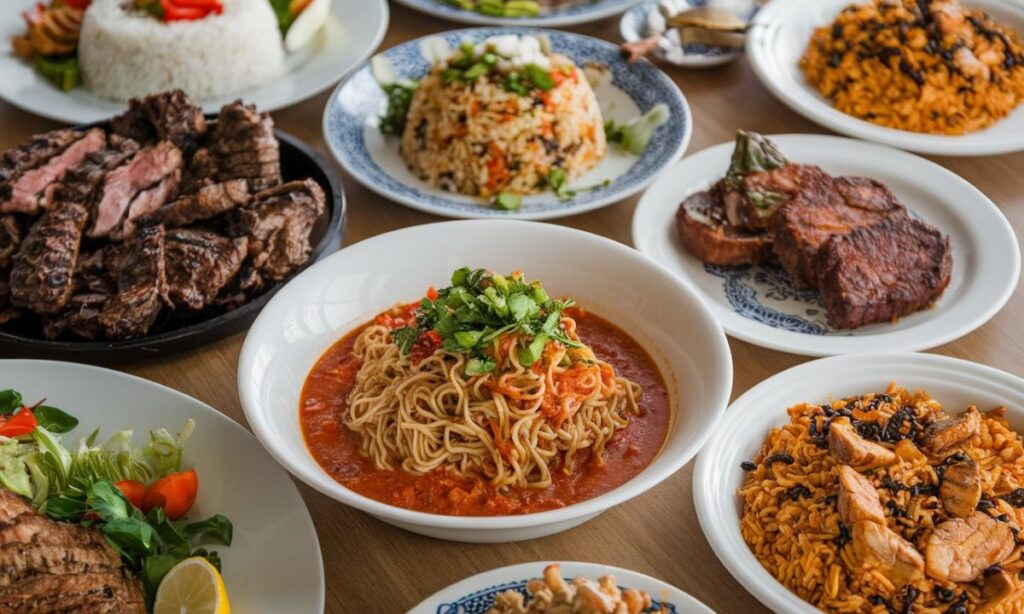
Agrawau cuisine is a reflection of the community’s values and history. Characterized by its vegetarian nature and use of traditional spices, Agrawau food is a culinary adventure.
Popular Agrawau Dishes:
- Churma Ladoo: A sweet delicacy made from wheat flour and ghee, often prepared during festivals
- Dal Baati: A hearty dish of lentils and baked wheat balls, reflecting the community’s roots in Rajasthan
- Ghevar: A disc-shaped sweet cake associated with festivals, particularly popular during Teej
- Gatte ki Sabzi: A curry made with gram flour dumplings, showcasing the community’s knack for creating nutritious vegetarian dishes
- Ker Sangri: A dish made from desert beans and berries, demonstrating the community’s ability to create delicious meals from limited resources
These dishes not only tantalize the taste buds but also tell the story of Agrawau’s journey through history and geography.
Exploring Agrawau’s Architectural Marvels
Agrawau architectural heritage is a testament to the community’s artistic sensibilities and engineering prowess. Notable examples include:
- Bada Bazaar, Kolkata: A bustling market area showcasing traditional Agrawau commercial architecture, with intricate facades and spacious courtyards
- Agrasen ki Baoli, Delhi: An ancient stepwell demonstrating sophisticated water conservation techniques, a marvel of medieval Indian architecture
- Agrasen Dham, Gurgaon: A modern temple complex blending traditional design with contemporary amenities, symbolizing the community’s ability to bridge past and present
- Fatehpur Sikri, Agra: While not exclusively Agrawau, this UNESCO World Heritage site showcases the influence of Agrawau architects and craftsmen in Mughal-era construction
These architectural wonders serve as physical reminders of the Agrawau community’s rich history and cultural contributions.
The Warmth and Hospitality of Agrawau’s People
One of the most striking aspects of Agrawau culture is the warmth and hospitality of its people. Visitors often remark on:
- The welcoming nature of Agrawau hosts
- The emphasis on guest comfort and satisfaction
- The sharing of cultural knowledge and traditions with outsiders
- The genuine interest in fostering cross-cultural understanding
This hospitality is not just a cultural trait but a reflection of the Agrawau philosophy of ‘Vasudhaiva Kutumbakam’ or ‘The world is one family’. It’s this spirit of inclusivity and warmth that has enabled Agrawau communities to thrive in diverse settings around the world.
Conclusion
In conclusion, the world of Agrawau is a fascinating blend of ancient wisdom and modern dynamism. From its rich cultural heritage to its significant economic contributions, Agrawau continues to be a vibrant and influential community in India and beyond. As we’ve explored in this guide, understanding Agrawau offers valuable insights into a unique way of life that has successfully bridged tradition and progress.
Whether you’re a curious traveler, a business enthusiast, or someone interested in cultural studies, the world of Agrawau has something remarkable to offer. As this hidden gem continues to shine in the modern world, it invites us all to learn, appreciate, and perhaps incorporate some of its timeless wisdom into our own lives.
FAQ’s
What is the purpose of Agrawau?
Agrawau aims to preserve cultural heritage, promote ethical values, and foster entrepreneurship and education within the community.
How can Agrawau be integrated with the systems I already have?
Integrate Agrawau by adopting its business ethics, networking strategies, community support structures, and cultural events into your existing frameworks.
Exist any restrictions on the functions offered by Agrawau?
Restrictions may include adherence to vegetarian diets, traditional family structures, focus on specific business sectors, and expectations of community participation.
Which sectors gain the most from Agrawau?
The sectors that benefit most are trade and commerce, finance, real estate, education, and information technology.
How do I obtain Agrawau’s backing?
To gain support, attend community events, join business associations, participate in philanthropic initiatives, align with Agrawau values, and seek mentorship from established leaders.
Also Read : EtrueSports Newsletter: Stay Ahead with Timely Sports News and In-Depth Analysis

